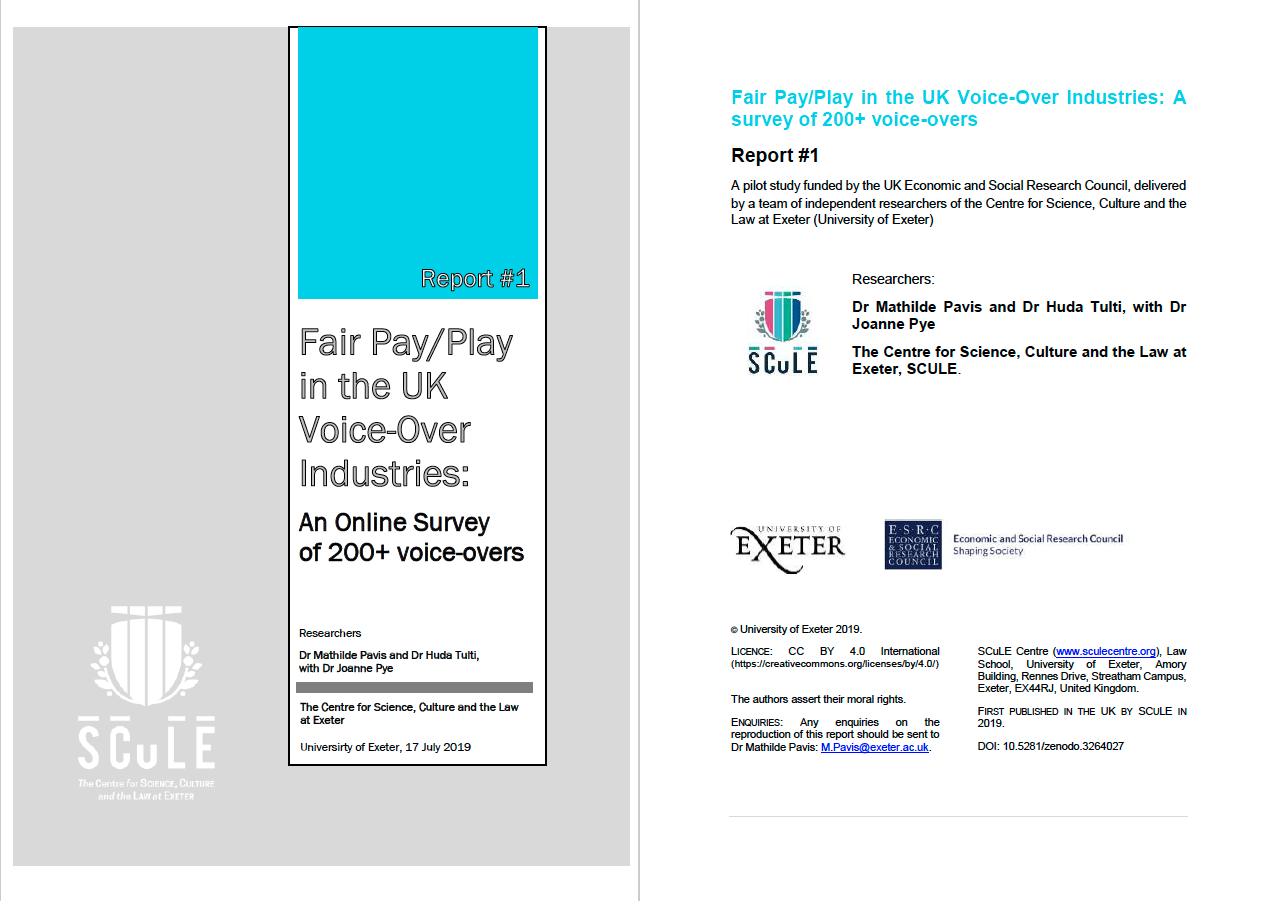The Centre for Science, Culture and the Law at Exeter publish their report on remuneration and contractual practices in the UK voice-over industries based on an online survey of over 200 voice-over performers conducted in 2019.
The survey documents current recruitment, remuneration and contractual practices in the UK voice-over industries based on empirical evidence. The survey also captures the views and experiences of voice-overs regarding peer-to-peer online recruitment platforms. This document the first of two reports summarizing the findings of this research project into voice-over performers’ pay and legal rights.
The results of the survey show that: online peer-to-peer recruitment platforms are perceived very negatively by voice-over performers; the use of written contracts, summarizing the key aspects of a transaction is extremely rare; and, there is a critical lack of awareness of intellectual property rights within voice-over performers paired with a perceived lack of representation by unions or organizations to defend and advance their rights. At the same time, the survey also evidences that the UK voice-over market is extremely versatile, and contributes to an impressive range of cultural, communication and entertainment sectors. The survey thus evidences that the UK voice-over industries are a key contributor to the country’s creative economy. As such, national policy-makers must take measures to safeguard the market’s resilience in the global digital environment, which in this case, includes addressing the role and impact of online peer-to-peer recruitment platforms.
The online survey is part of a larger pilot study about online peer-to-peer recruitment platforms operating in the UK creative industries. These platforms have introduced Uber-like business models for the commissioning of creative content, bringing both threats and opportunities to the UK creative economy. This research investigates the impact of these platforms from the perspective of a specific market: the UK voice-over industries. This is done by analysing levels of remuneration, recruitment and contractual practices as well as the role played by intellectual property rights in monetizing the work of voice-over performers.
In a two-part analysis, this study demonstrates that online peer-to-peer recruitment platforms defeat the framework of intellectual property (copyright and performers’ rights) on a global scale. The research findings are outlined in two reports. The first report (available below) analyses the findings of the online survey carried by the research team to capture the experience of voice-over performers on remuneration, recruitment, contract and intellectual property. The second report contrasts these results with a review of online peer-to-peer recruitment platforms’ terms and conditions, scheduled to be released by January 2020.
The research concludes that the contractual terms currently practiced by online peer-to-peer recruitment platforms pose a threat to the UK intellectual property framework. However, preliminary investigation also suggests that these platforms could become an opportunity to introduce principles of contractual best practice on a global scale, should their terms and conditions be appropriately revised.
The research is funded as independent research by the UK Economic and Social Science Research Council (ESRC) and is the first study focused on the voice-over industry, capturing performers’ experience in this fast-changing industry. This research was led by Dr Mathilde Pavis and Dr Huda Tulti, in collaboration with Dr Joanne Pye.

Download the full Report on Zenodo

Survey Findings: Executive Summary


